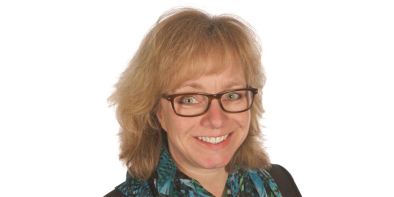 Behind the touchy-feely side of ethical investing lies a minefield of rapidly evolving vocabulary and processes. Which processes elevate it from a slight tweak to an equity fund or making the client feel good, to actually making the world a better place?
Behind the touchy-feely side of ethical investing lies a minefield of rapidly evolving vocabulary and processes. Which processes elevate it from a slight tweak to an equity fund or making the client feel good, to actually making the world a better place?
The environmental, social and governance of ESG are well-known measures for ethical investments. Ethical funds will often select companies that adhere to good practice in some or all of those categories.
But Julia Dreblow (pictured above), founding director of Fund EcoMarket, an ethical investment information hub for intermediaries, says it is not really as simple as picking one of the three. ‘Apart from putting the planet at risk, the professional line should be that shareholder value is at risk if all three, E, S and G, are not managed properly.’
Rethink the strategy
A common refrain from fund managers is they will engage with companies that are not exercising good practice in any of these areas so they can improve it. Such issues can include flawed governance from poor board oversight. But some investors will be unwilling to fund or profit from such poor practices.
Dreblow thinks it is crucial investors do not give up their position of responsible ownership, because companies will behave much worse without it. But she acknowledges it cannot be used indefinitely as a strategy. ‘Their primary duty is to their shareholders,’ she says. ‘If those shareholders do not steer them, these companies will do whatever they want.’
The ethical Triodos Bank works to improve things by engaging large- and mid-size companies. But it also does smaller-scale impact investing. Senior investment relations manager Whitni Thomas says impact investing creates effective positive change.
‘With shares or bonds traded on the stock market, so little of it is new issuance,’ she says. ‘Whereas with impact investing, you are genuinely making new things happen.’
Incomplete picture
Many fund managers use the sustainable development goals (SDGs) to describe how their ethical funds are having a positive effect on the world. United Nations (UN) member states began working to meet the 17 SDGs in 2016, with the UN describing the goals as ‘the blueprint to achieve a better and more sustainable future for all’.
Ita McMahon, manager of the investment management team at Manchester-based advice firm Castlefield, says there can be problems with how the finance sector is using SDGs.
‘The criticism from the non-governmental organisation community is SDGs are not to be cherry-picked,’ she says. ‘They are common and inviolable across the board. We cannot just advance one; we have to advance them all.’
But McMahon says she has sympathy for companies using SDGs because, even though the goals were designed for nation states, they have been helpful for framing corporate social responsibility efforts.
‘What we need to see more of is companies reflecting on how they may cause negative effects on the way to achieving the SDGs. People need to have an honest conversation with themselves about how they may hinder progress towards the SDGs, as well as support it,’ she adds.
‘A drinks manufacturer might focus on its contribution towards women’s empowerment, but stay quiet on the huge amount of water it consumes in its manufacturing. This is not a full and honest picture.’
Dreblow has another reason to be sceptical: the deadline to meet the SDGs is 2030. ‘How do you take money off someone who is investing for 30 years when you only have a 12-year period for the SDGs now?’ she asks.
‘It makes more sense to say this fund addresses climate change or poverty alleviation and also links through to SDG 13, for example.’
Dreblow’s top picks
Dreblow rates Liontrust for its 15-year track record in the area of ESG investing. But she is less impressed by large asset managers running ethical trackers, which she says are ‘so light touch as to be pretty much meaningless’.
She is impressed by Kames Capital, though. ‘It is really good on the ethical side and has now moved across into sustainability,’ she says. ‘It is strong on negative screening. And Henderson Global Investors has changed managers a number of times but its current manager, Hamish Chamberlayne, is really into sustainability. He is great.
‘Meanwhile Pictet has done a load of work recently integrating ESG into everything it does and has themed funds that pick up different pockets of stuff.’
This article was first published by New Model Adviser on 3 October 2018:
